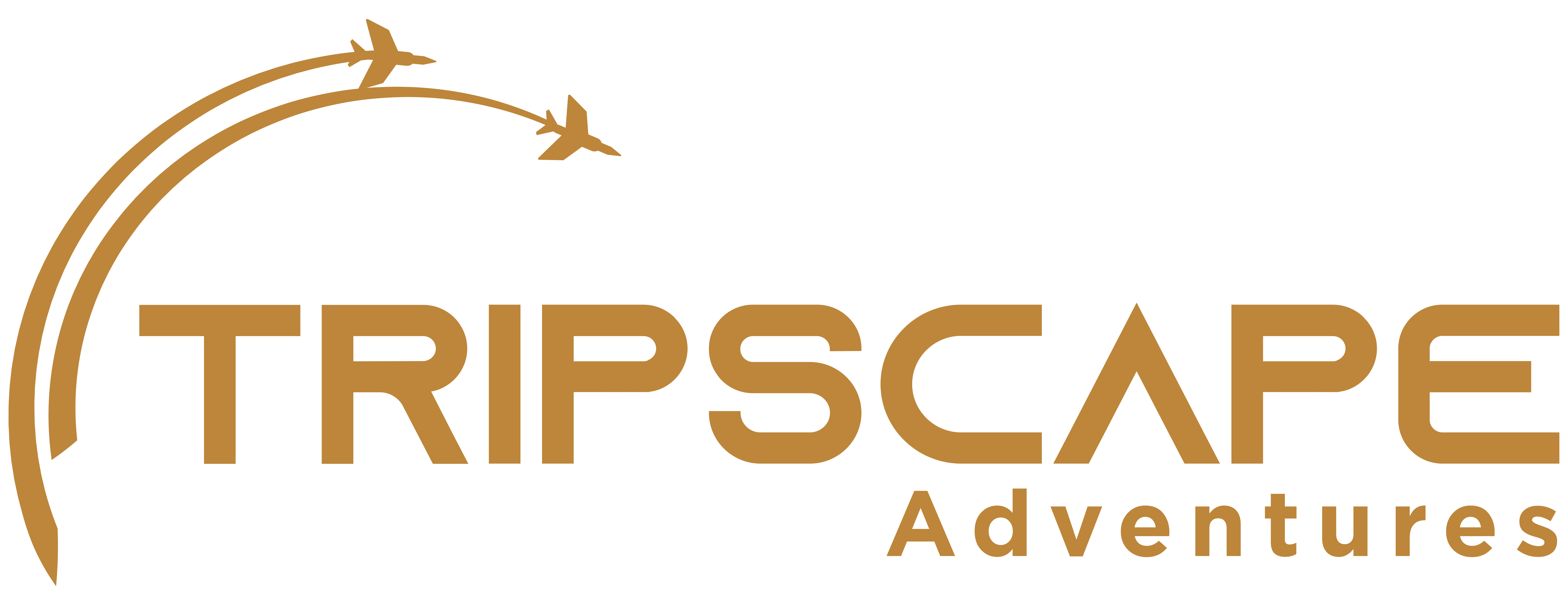Leisure Groups and Meetings: A Perfect Blend of Work and Play
Leisure groups and meetings provide a unique opportunity for individuals and organizations to combine work and play in a seamless and productive manner. Whether it’s a corporate retreat, team-building event, or industry conference, these gatherings offer a chance to engage, collaborate, and unwind in a setting that promotes productivity and relaxation. In this article, we will explore the benefits of leisure groups and meetings, discuss how they can enhance organizational growth, and provide practical tips for planning and organizing successful events.
Table of Contents
- Introduction
- Understanding Leisure Groups and Meetings
- Benefits of Leisure Groups and Meetings
- Planning Successful Leisure Events
- Choosing the Right Venue
- Creating Engaging Agendas
- Incorporating Team-Building Activities
- Enhancing Networking Opportunities
- Ensuring Participant Satisfaction
- Measuring the Success of Leisure Groups and Meetings
- Key Considerations for Remote Meetings
- Case Studies: Successful Leisure Group Events
- Tips for Effective Budgeting
- The Future of Leisure Groups and Meetings
- Conclusion
Introduction
In the present-day dynamic and highly competitive business landscape, companies are progressively acknowledging the significance of nurturing collaboration, creativity, and the well-being of their employees. Leisure groups and meetings offer a holistic approach to achieving these goals by combining work-related discussions and activities with recreational and leisurely experiences. By stepping away from the traditional conference room setting, participants can engage in a relaxed environment that promotes open communication, enhances problem-solving skills, and strengthens interpersonal relationships.
Understanding Leisure Groups and Meetings
Leisure groups and meetings are organized events that bring together individuals with a shared interest or purpose, allowing them to engage in both work-related and recreational activities. These gatherings can range from small team-building exercises to large-scale conferences and conventions. The key principle behind leisure groups and meetings is to create an environment that encourages collaboration, networking, and personal growth while offering participants an opportunity to unwind and recharge.
Benefits of Leisure Groups and Meetings
- Enhanced Collaboration: By integrating leisure activities into the agenda, participants can build stronger bonds and foster a sense of camaraderie, leading to increased collaboration and innovation within the organization.
- Improved Creativity: Breaking away from the routine and immersing oneself in new surroundings can stimulate fresh ideas and perspectives, sparking creativity among participants.
- Increased Productivity: When individuals have the chance to relax and recharge, they return to work with renewed energy and focus, leading to improved productivity and efficiency.
- Strengthened Relationships: Leisure groups and meetings provide an excellent platform for individuals to get to know each other on a personal level, strengthening professional relationships and creating a more cohesive work environment.
- Enhanced Learning Opportunities: Incorporating interactive workshops, keynote speeches, and panel discussions into the agenda allows participants to gain valuable knowledge and insights from industry experts.
Planning Successful Leisure Events
To ensure the success of leisure groups and meetings, meticulous planning and attention to detail are paramount. Here are some essential steps to consider when organizing such events:
Choosing the Right Venue
Selecting an appropriate venue sets the tone for the entire event. It should be conducive to both work and leisure activities, offer adequate facilities and amenities, and be easily accessible to all participants.
Creating Engaging Agendas Crafting an engaging agenda that balances work and leisure is crucial. Moreover, it should include a mix of educational sessions, networking opportunities, team-building activities, and leisurely experiences to cater to the diverse needs and interests of the participants.
Incorporating Team-Building Activities
Team-building activities play a vital role in fostering collaboration and trust among participants. These activities can range from problem-solving challenges to outdoor adventures, all aimed at enhancing teamwork and communication.
Enhancing Networking Opportunities
Facilitating networking opportunities is essential for participants to connect with industry peers, share ideas, and explore potential collaborations. Networking sessions, social events, and informal gatherings can be organized to encourage meaningful interactions.
Ensuring Participant Satisfaction
Regularly seeking feedback and monitoring participant satisfaction throughout the event is crucial. This can be done through surveys, one-on-one conversations, or interactive feedback sessions to address any concerns and make necessary adjustments.
Measuring the Success of Leisure Groups and Meetings
To evaluate the effectiveness of leisure groups and meetings, key performance indicators (KPIs) can be established. These may include participant feedback, post-event surveys, business outcomes, and overall attendee satisfaction. Analysing these metrics provides valuable insights for future event planning and helps measure the return on investment (ROI) of such gatherings.
Key Considerations for Remote Meetings
In the era of remote work and virtual meetings, adapting leisure groups and meetings to an online format is essential. Furthermore, utilizing video conferencing platforms, interactive virtual activities, and online networking tools can help recreate the collaborative and engaging environment of in-person events.
Case Studies: Successful Leisure Group Events
By examining successful case studies of leisure group events, we can gain inspiration and insights into effective strategies and best practices. Moreover, these real-life examples highlight how organizations have leveraged leisure groups and meetings to achieve their desired objectives and create memorable experiences for participants.
Introduction
Planning and organizing a leisure group event requires careful consideration of various factors to ensure a memorable and successful experience for all participants. From selecting the right venue to creating engaging activities, every aspect contributes to the overall success of the event.
Defining the Objective
Before diving into the event planning process, it is essential to define the objective of your leisure group event. Is it aimed at team-building, fostering relationships, or celebrating achievements? Clarifying the purpose will help you make informed decisions throughout the planning process.
Choosing the Perfect Venue
Selecting an appropriate venue is crucial for the success of your leisure group event. Consider factors such as capacity, location, facilities, and ambiance. A venue that aligns with the event’s objective and provides a comfortable and enjoyable atmosphere for participants will greatly enhance the overall experience.
Tailoring Activities to Suit the Group
Engaging and well-planned activities are the heart of any leisure group event. Tailor the activities based on the group’s preferences, demographics, and objectives. Whether it’s team-building exercises, workshops, outdoor adventures, or social games, ensure they promote interaction, fun, and meaningful connections among participants.
Ensuring Seamless Logistics
Efficient logistics are essential to ensure a smooth and hassle-free experience for both event organizers and attendees. Pay attention to details such as transportation, accommodation, meals, and schedules. Anticipate potential challenges and have contingency plans in place to mitigate any unforeseen circumstances.
Engaging Communication and Promotion
Effective communication and promotion play a vital role in creating excitement and generating interest in your leisure group event. Utilize various channels, such as social media, email marketing, and word-of-mouth referrals, to spread the word. Clearly communicate the event’s unique selling points, benefits, and key details to attract participants.
Facilitating Networking Opportunities
Networking is a valuable aspect of leisure group events, providing participants with opportunities to connect, collaborate, and build relationships. Incorporate dedicated networking sessions, ice-breaking activities, and informal gatherings to encourage meaningful interactions among attendees.
Capturing Memorable Moments
Memories are an integral part of any successful leisure group event. Arrange for professional photography, videography, or even a photo booth to capture special moments throughout the event. Share these memories with the participants afterward, allowing them to relive the experience and strengthen the bond formed during the event.
Managing Contingencies and Flexibility
Even with meticulous planning, unforeseen circumstances can arise during any event. Be prepared to manage contingencies and remain flexible. Have backup plans, alternative activities, and a responsive team to handle any unexpected situations, ensuring a seamless experience for all participants.
Evaluating the Success of the Event
Once the event concludes, make sure to allocate time for assessing its level of success. Gather feedback from participants through surveys or interviews to gain valuable insights and identify areas for improvement. Assess whether the event met its objectives and analyze the overall attendee experience. Use this feedback to refine your future leisure group events and enhance their impact.

Tips for Effective Budgeting
Budgeting is a critical aspect of organizing Leisure groups & meetings. Additionally, it involves allocating resources efficiently, negotiating vendor contracts, and identifying cost-saving opportunities without compromising the quality and impact of the event. Moreover, implementing a comprehensive budgeting plan ensures financial transparency and accountability.
The Future of Leisure Groups and Meetings
As workplaces evolve, so do Leisure groups & meetings. The future will likely see a further integration of technology, personalized experiences, and sustainable practices. Virtual and hybrid events will continue to play a significant role, enabling global participation and minimizing environmental impact.
-
Introduction
The future of Leisure groups & meetings is being shaped by various factors, including changing consumer preferences, technological advancements, and the need for sustainable practices. Furthermore, this article delves into these trends and provides insights into what the future holds for this industry.
-
Changing Dynamics of Leisure Groups
The Rise of Experience-Oriented Travel
Leisure group travel is shifting towards experiential and immersive activities. Furthermore, modern-day travelers are actively searching for extraordinary experiences that transcend conventional sightseeing. Additionally, this trend emphasizes the importance of creating memorable moments and engaging activities that cater to individual interests and preferences.
Customization and Personalization
The future of leisure groups lies in offering tailored experiences. Moreover, travelers now expect personalized itineraries, customized services, and options to curate their own travel packages. Additionally, from choosing specific activities to selecting accommodations based on individual preferences, customization is becoming the norm.
Sustainable and Eco-Friendly Practices
With the growing awareness of environmental issues, leisure groups are adopting sustainable practices. Additionally, eco-friendly accommodations, responsible tourism, and carbon offset initiatives are gaining prominence. Moreover, travelers are actively seeking experiences that align with their values of sustainability and conservation.
-
Transformations in Meeting Formats
Hybrid Meetings
Hybrid meetings combine in-person and virtual elements, offering flexibility and enhanced accessibility. Participants can choose to attend either in person or remotely, enabling broader reach and reducing logistical constraints. Hybrid meetings also facilitate seamless collaboration between attendees from different locations.
Virtual and Remote Collaboration
Advancements in communication technology have made virtual meetings more efficient and interactive. Moreover, remote collaboration tools enable real-time communication, file sharing, and video conferencing. Additionally, virtual meetings eliminate the need for travel and provide opportunities for cost savings and increased productivity.
Enhanced Connectivity and Communication
The future of meetings relies on robust connectivity infrastructure. High-speed internet, reliable video conferencing platforms, and seamless data-sharing capabilities are essential for effective collaboration. Improved communication channels foster engagement and enable participants to connect regardless of geographical barriers.

-
Technology’s Influence on Leisure Groups and Meetings
Artificial Intelligence and Machine Learning
AI and machine learning are revolutionizing the leisure and meeting industry. Furthermore, intelligent chatbots assist travelers in planning their trips, providing recommendations based on preferences and past behavior. Additionally, machine learning algorithms analyze vast amounts of data to optimize travel experiences and streamline meeting logistics.
Virtual Reality and Augmented Reality
Virtual reality (VR) and augmented reality (AR) provide immersive and interactive experiences. Additionally, these technologies enable virtual site visits, virtual event participation, and interactive training sessions. Moreover, VR and AR enhance engagement and provide a unique way to experience leisure activities and meetings remotely.
Mobile Applications and Digital Platforms
Mobile applications and digital platforms are transforming the way Leisure groups & meetings are organized. These tools offer convenience, enabling travelers to book accommodations, access itineraries, and connect with fellow participants. Digital platforms also facilitate real-time updates and seamless communication between organizers and attendees.
-
The Role of Data Analytics in Optimizing Leisure Group Experiences
Personalized Recommendations and Tailored Experiences
Data analytics allows leisure groups to gain insights into customer preferences and behavior. Additionally, by analyzing data, organizations can offer personalized recommendations, tailor experiences, and anticipate customer needs. Moreover, this level of customization enhances customer satisfaction and fosters loyalty.
Predictive Analytics for Demand Forecasting
Predictive analytics enables leisure group organizers to forecast demand accurately. Furthermore, by analyzing historical data, trends, and external factors, organizers can optimize capacity planning, resource allocation, and pricing strategies. Moreover, predictive analytics minimizes operational risks and ensures optimal utilization of resources.
Real-Time Feedback and Continuous Improvement
Real-time feedback mechanisms empower leisure group organizers to make immediate improvements. Gathering feedback during and after events helps identify areas of improvement, enhance customer experience, and refine service quality. Continuous improvement based on feedback fosters a culture of excellence and ensures customer satisfaction.
-
Overcoming Challenges and Ensuring Security
Privacy Concerns and Data Protection
As technology plays a larger role in Leisure groups & meetings, privacy concerns and data protection become crucial. Additionally, organizations must prioritize data security, adhere to privacy regulations, and implement robust cybersecurity measures to safeguard customer information and maintain trust.
Cybersecurity and Virtual Threats
Virtual meetings and digital platforms present new challenges in terms of cybersecurity. Moreover, organizations must implement secure communication channels, encryption protocols, and multi-factor authentication to prevent data breaches and protect against virtual threats. Additionally, vigilance and proactive security measures are vital in an increasingly digital landscape.
Compliance with Regulations and Standards
Leisure groups & meetings organizers must stay updated on relevant regulations and standards. Additionally, compliance with safety protocols, health guidelines, and accessibility requirements is essential to ensure a secure and inclusive environment.. Meeting industry standards promotes professionalism and enhances the overall experience for participants.
-
The Future of Venue and Facility Design
Flexible and Adaptable Spaces
The future of leisure group venues lies in flexibility and adaptability. Furthermore, spaces designed to accommodate various event formats and configurations allow for seamless transitions between different activities. Additionally, versatile venues enable organizers to cater to diverse needs and enhance attendee engagement.
Integration of Technology and Sustainability
Venues are incorporating technology and sustainable practices into their designs. Moreover, smart building systems, energy-efficient features, and sustainable materials contribute to eco-friendly operations. In addition, the integration of technology enhances the attendee experience, improves efficiency, and reduces environmental impact.
Health and Wellness Considerations
Post-pandemic, health and wellness considerations have become paramount. Leisure group venues are implementing measures such as enhanced air filtration systems, touchless interfaces, and health screening protocols. Prioritizing the well-being of attendees fosters confidence and creates a safe environment for Leisure groups & meetings.
Conclusion
Leisure groups and meetings offer a harmonious blend of work and play, providing individuals and organizations with a platform to collaborate, learn, and rejuvenate. By embracing these events, businesses can foster creativity, strengthen relationships, and enhance overall productivity. As we move forward, it is crucial to adapt and innovate in organizing Leisure groups & meetings to meet the evolving needs and preferences of participants.
FAQs
-
How can Leisure groups & meetings benefit my organization?
Leisure groups & meetings promote collaboration, creativity, productivity, and relationship-building within your organization.
-
How do I choose the right venue for a leisure event?
Consider factors such as location, amenities, accessibility, and the ability to accommodate both work-related and leisure activities.
- What are some popular team-building activities for Leisure groups & meetings? Team-building activities can include outdoor adventures, problem-solving challenges, and interactive workshops.
-
How can I measure the success of a leisure group event?
Collecting participant feedback, conducting surveys, and analyzing business outcomes are effective ways to measure the event’s success.
-
What is the future of Leisure groups & meetings?
The future will likely involve further integration of technology, personalized experiences, and virtual or hybrid event formats.


